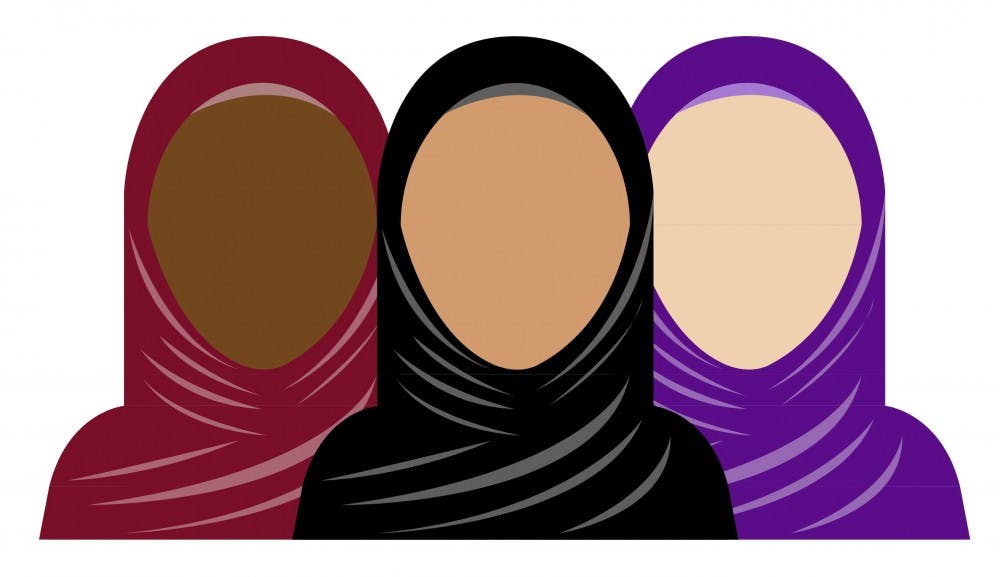World Hijab Day is a day of celebrating for Muslim women by walking in their shoes for a day. Elon University is celebrating Hijab Day April 25. Students are invited to cover their heads with either a scarf or cap for the day.
According to the official World Hijab Day website, the idea stems from a desire to foster religious tolerance by inviting women to experience what it is like to wear a hijab.
The event officially began Feb. 1, 2013, and was originally created for women. Senior Kristina Meyer brought Hijab Day to Elon’s campus on February 2016.
“My hijabi Muslim friends in high school asked me whether I wanted to participate while I was in high school. So, my first year here, I asked the Muslim Life Coordinator whether the event was something that she thought would be appropriate or welcome here,” Meyer said.
“I think it is open for everybody, but not men because women are actually encouraged to wear it. … It doesn’t really carry over to the other gender,” said Shereen Elgamal, a lecturer in Arabic. “But there are so many male members of our community who can participate by attending the dinner, by asking questions, by participating in the discussion.”
Though the practice of wearing a hijab is limited to women, Elon has provided opportunities for every student to learn about the Islamic faith, and this year men are being invited to participate.
“This year is similar to last year in that the event is to show solidarity, but we’ve expanded to include caps for men because in Islam, Hijab means modesty for all, not just women,” Meyer said.
To Elgamal, Hijab Day is about more than just wearing a scarf — it’s an opportunity to appreciate another culture.
“Hijab Day is another one of these instances where different communities reach out to each other and try to just explain part of what we do,” Elgamal said.
Meyer said the goal of Hijab Day is “starting conversations and showing solidarity against Islamophobia.”
In regards to the stereotypes surrounding the hijab, Elgamal emphasized the importance of respectful discussion.
“I believe that any kind of discussion … that is founded in respect would actually deal with stereotypes in one way or another,” Elgamal said. “I always say knowledge breeds understanding and understanding breeds ... rise to respect, and this is what we want.”
Through this discussion, non-Muslims can learn the symbolism and reasons behind the choice to wear a hijab.


